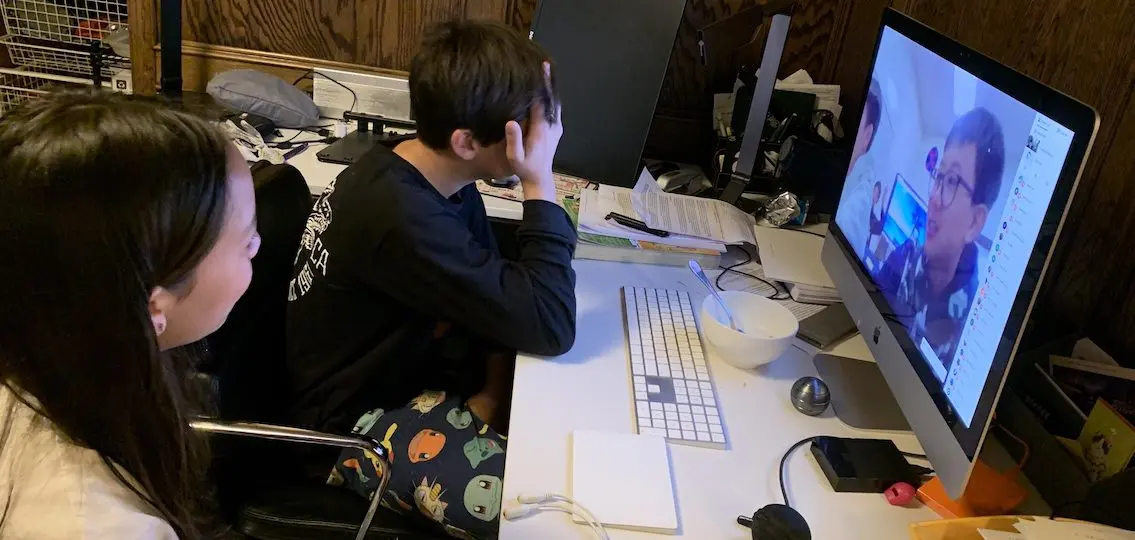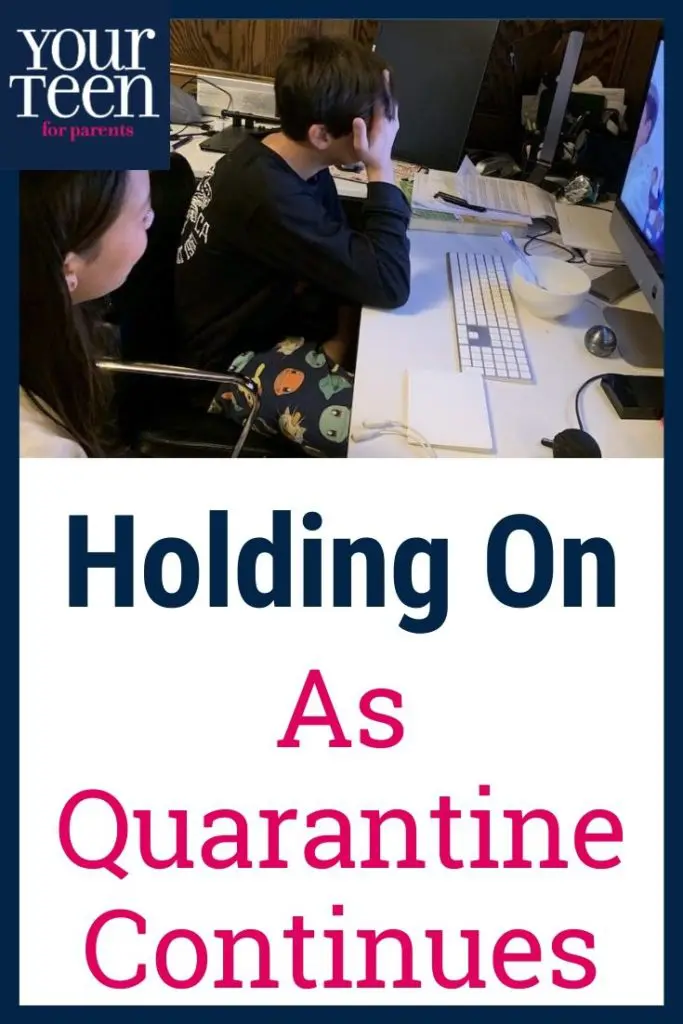Amy Speidel is a Master Instructor with Conscious Discipline and she is also a parent coach at Senders and Associates in Cleveland, Ohio. As we dig in to several more weeks of sheltering in place, Speidel offers advice about how to maintain perspective and coexist as smoothly as possible with your family.
| [adrotate banner=”169″] |
Q: We are in uncharted territory. And we’re at a point now where most people have spent some time alone in their house with families. It seems that some of the talk about “finding grace” is causing eye rolls.
Speidel: It’s the whole, “How long do you want company at your house? How long do you really want to plan vacation?” It’s hard when you’re living with somebody and we’re used to breaks. We’re used to having other parts of our lives. And this is so intense. It is the four walls closing in kind of scenario. So no wonder it’s become a little bit more challenging to see the grace.
Q: How do we convince teenagers to follow the rules?
Speidel: Teenagers in particular are hard to convince if they haven’t felt it in any more personal way that they should be following these rules. It’s happening where it’s very hard to convince teenagers.
The information that’s out there — the public service announcements — is really pretty poignant around why this is so important. They focus on every time you decide that it doesn’t matter if you go out and you’re with other people, some health care professional has to be away from their family even longer.
We need to help them understand that being out may be fine for them, but it’s causing more harm to somebody else. We’re not trying to lay a guilt trip on people. It really is about hooking them up with somebody who is impacted by this in a in a more profound way. So if you have teenagers or even college kids who are at that point in their life where they’re supposed to take risks anyway, facing this virus is like being that invincible kind of person. And they want that.
But if they can see that they are being strong for somebody who isn’t able to make it, then it’s a different choice. I loved the analogy that somebody used. If you have glitter on your fingers and everything you touch, you just leave a little bit of glitter. You may wash your hands and get it off. But how many things have you touched before you’ve actually gotten the glitter off your own hands? Glitter goes everywhere and it shows up everywhere, even when you thought you got rid of all of it.
Q: Are there any tools that we can use in our marriages and with our kids to take the moments that are likely fear and anxiety, but are ending up being sources of conflict?
Speidel: I think that part of it is having a game plan before that even starts. So going into whatever week of isolation this is for any particular family, it really is important to just sit down and say this is not going away tomorrow.
We’re not going to pack up any day now and go back to our regular life. We’re going to be in this for a while. This is the new normal. And this is not a sprint. This is a marathon. So we’re going to have to figure out how to take care of ourselves. And, in some ways, it would be hard to be quarantined all by yourself, but at least you get to decide when you want to reach out and connect with somebody. Once you hunker down, you’re in this together.
We have to know when to do a time out. Know when to say, “Wait a minute. This isn’t the best of who we can be in this moment right now so we’re just going to take five, go to our corners and do whatever it is that we need to do.”
Q: If I were to say to my teenagers, “OK, time out, everyone, take a break,” they’d look at me like, “You take a break.”
Speidel: That’s why you need a game plan ahead of time. Because they have to invest as much as you’re investing in wanting this to be something other than hell on earth for the time that we’re going to be together. This is unprecedented.
Say to your teenager: “We’re going to do this thing and we’re going find out more about who we are as a family. But we get to decide how we want to emerge from this. If we want to have regrets about this, we can do that. We can just run each other over and say things that are mean and do all that kind of stuff and then excuse it by saying that it was just hard to live with you for that time. Or we can really use it to say how do we become more curious about who we really are on this planet?”
Q: What about if you’re co-parenting?
Speidel: I think that is one of the hardest things right now for people where both parents are home. Because now kids are going back figuring out which parent is more likely to say yes when they ask for something. And it can be over things as simple as “Who said that you could get another snack? We’re having dinner in half an hour.” Now, I’m not only irritated with the fact that you took a snack. But I’m irritated with the person who gave you permission to do that.
It’s about going back to having some ground rules, but also knowing when do you need a time out. I can back up and say, “You don’t know how I would make that decision because you’re not normally here and you’re just doing the best you can with what you do know.” I can’t change the rest of my family. What I can change is who I want to be for the rest of my family.
And that’s maybe the hardest thing in this.
This is not about transforming your kids so they behave. This is not about getting your spouse to beat your voicebox for you. It’s about who do you want to be and how can you be curious about what pisses you off enough so that you can be conscious of bringing your best self forward and totally admitting when you can’t do it.

One last piece of advice: Just remember that 20 percent of the time of your day you can be nailing it and the rest can be mucky as hell. But that 20 percent of the time is going to be what matters the most. Hold onto that. Be grateful that we were able to have one meaningful conversation out of an entire day, that maybe we got one thing accomplished, that maybe we played one game this week, that those moments mattered more than all of the irritations and the frustrations. And they do matter. We hold them in our hearts. So don’t minimize those moments. Those are big moments that will hold you together.





